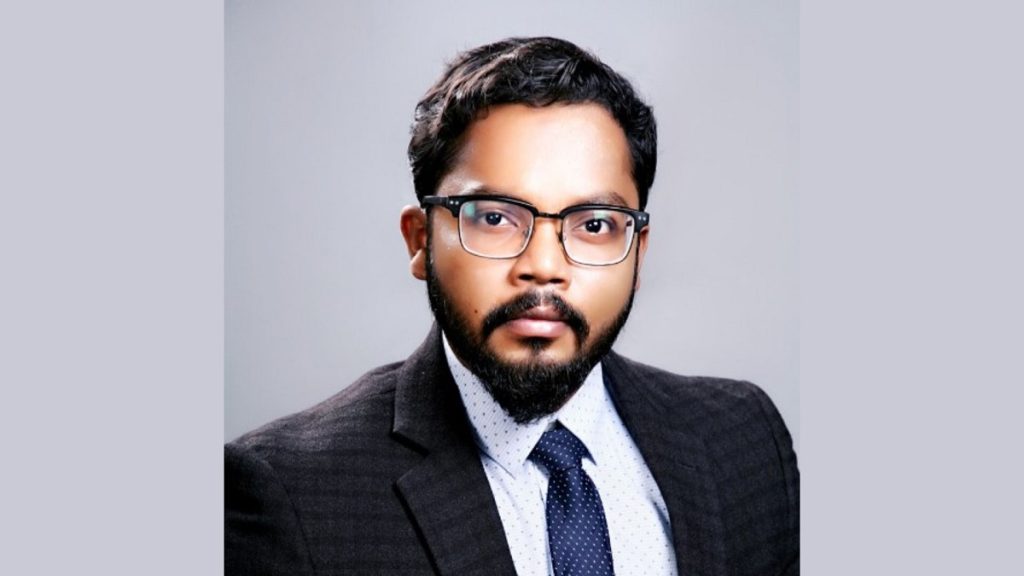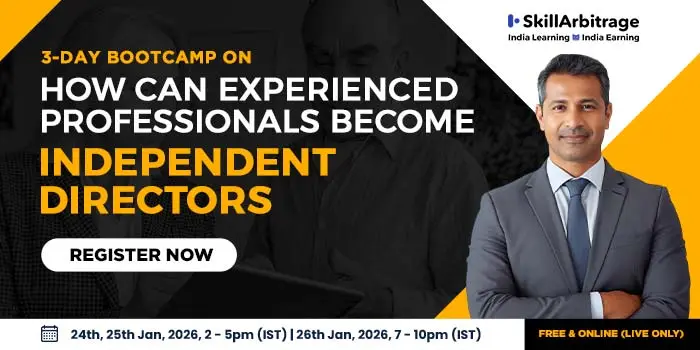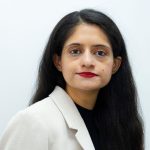This interview has been published by Anshi Mudgal and The SuperLawyer Team
Your academic journey includes a full-scholarship Ph.D. in International Law and Economics from Rome and an LL.M. from Berlin. How has this interdisciplinary training influenced your understanding of economic analysis in the development of international legal norms and dispute resolution mechanisms?
Public international law in general requires deep academic insight considering that the efficaciousness of the ‘rule of precedents’ (if any) is volatile in practice. When it comes to International Economic Law (as we like to call it), issues in dispute concern not only economic treaties but its complex interactions with the branches of applicable national laws as well as commercial realities. In such instances, having cultivated the habit of interdisciplinary thought processes can certainly help in strategizing efficiently. ISDS being a form of dispute resolution where effects of economic policies are often subject to adjudication by international tribunals – requires one to understand macroeconomic impacts of such policies and/or measures and also analyze it within the contours of the facts. Dispute resolution mechanisms flowing from treaties are a herd of unicorns within the fields of law. Hence, having a wider field of intellectual vision that one may acquire through interdisciplinary academic pursuits and exposure to multiple legal systems can certainly help. However, I maintain that institutional education is not the only way of going about it. My journey is the consequence of my choices, that I remain happy about.
You pursued your Ph.D. in International Law and Economics while working full time, a challenge few take on. What was that experience like, and how did you manage the demands of both academic research and professional responsibilities?
This again was a consequence of one of the choices that presented itself to me. Applying for Ph.D. Scholarships is a full-time job in itself, and I understood that from the failures of my initial attempts. Identifying a research gap, crafting a proposal and a plan of execution, having it critiqued from experts, choosing a Supervisor, shortlisting universities with appropriate departments, and then making it within the deadlines – all of these mandatory steps to begin a Ph.D. are time-consuming and require dedicated efforts. Luckily, during my stint at a boutique law-firm in Berlin, I had come to be professionally acquainted with a leading expert in the field of international economic law, Prof. Steffen Hindelang. Having already started to work with him part-time, while still at the law firm – allowed me to ease into the process. With time, I was exposed to several complex questions of law and started to learn approaches that experts take while opining on a matter of international economic law. My association with the Professor put me into a network of an intelligentsia, whose sharp and unfiltered critique helped me work on the list of what to do. As I continued to assist him in several of his engagements as an expert in several international forums and arbitrations, my ability to gain context expanded. Before trying to solve a problem, I got to understand a wider gamut of the field within which the solution was to be proposed. This led me to choose a Ph.D. theme that lay in the intersection of what I was working on, and what I could develop it into i.e., “Fate of Protectionism in International Investment Control: A Sustainable Development Perspective”. After 6/7 months of refining my proposal, I found the opportunity in Rome i.e., a rare interdisciplinary Ph.D. programme in economics and law – where I applied with my proposal and ended up getting selected. While the scholarship required me to move to Rome, I continued my role with the Professor that expanded over time as well. As my research and work were largely in the same field, both complemented each other. Being in Rome, allowed me the opportunity to work on a novel project on investment contracts at UNIDROIT. All of it together was indeed a demanding endeavour, but the symbiosis between all the engagements rendered it possible. Of course my mentors, supervisor, and university enabled me to travel and engage adequately to participate in forums of exciting discussions that kept me motivated. It was the ecosystem that made it possible for me.
With close to a decade of experience across Germany, Italy, and India, how has your cross-border legal practice informed your strategy in advising global clients, especially in high-stakes commercial arbitrations and international contract negotiations?
A multi-jurisdictional exposure with the fortune of having hands-on experience throughout – is essentially a professional upbringing narrative. Having been successful at surrounding myself with people smarter than me in several instances has taught me much. As we all know, Civil Law and Common Law – being the two distinct forms of legal systems co-exist with characteristic differences whose intricacies one can experience better while working on cases that necessitate grappling with them. In my limited experience, understanding of differences in procedural and substantive law of contrasting jurisdictions is a non-negotiable for lawyers who want to work on matters ‘international’. So indeed, I now take into account more things in my analysis of facts and law, including cultural and systemic differences of jurisdictions. And most importantly, it helps me delineate the questions that I need help with, when corresponding with my colleagues outside India.
In terms of stakes – one must understand that in cross-border disputes, stakes are usually high by default. The process is complex and expensive for the parties concerned, hence is resorted to when stakes are generally high.
Your path to becoming a Principal Associate at DMD Advocates has been anything but conventional. What were some key turning points in your journey, and how did they prepare you for your current leadership role? Also, in your role at DMD Advocates, you lead advisory work on cutting-edge issues like crypto-assets and artificial intelligence. How equipped do you think the Indian legal system is in comparison to other jurisdictions to address the legal complexities emerging from digital assets and algorithm-driven systems?
As key turning points, I would list three of them, (i) having had the opportunity to work and learn under an academic lawyer, that showed me a novel career path that I can tweak for myself, is possible; (ii) moving to Rome, that allowed me to be close to UNIDROIT and get acquainted with some experts who advise on matters concerning Digital Assets; (iii) deciding to move back to India for the opportunity at the Ministry of Finance, which allowed me to apply whatever I learnt to matters of economic treaties on a daily basis.
As for my role in DMD Advocates, I am a part of the dispute resolution and litigation team. Here I work on matters concerning both Indian law and International law. Working cultures differ across continents and countries, but it is usually inconsequential to engage in comparisons. However, my style of collaboration with colleagues (including my juniors), as I like to think it, is a blend of German directness in terms of giving and taking feedback, Italian tendency to ease into things unless necessary to do otherwise (I detest fake emergencies) and the signature Indian adaptability in making the best of what is available.
In terms of advisory in new technologies, a lawyer’s take is necessitated by the fact that the legal framework applicable doesn’t immediately change, instead it often may need to evolve. Hence, identifying gaps in the legal and regulatory frameworks and advising on account of realities, is a primary need of the hour. However, given the pace in which the digital economy of the world is changing, new challenging questions requiring interdisciplinary approaches are becoming increasingly common for those of us who are active in space. In terms of how prepared the Indian legal system is to adapt to new technologies, I think we have enough smart brains in the country to do the needful. The contextual regulatory landscape is evolving across the world, and India is no exception. It is the age of geoeconomics after all.
Having represented clients from the EU, Asia, and the Middle East in arbitration and contract-related matters, what recurring legal risks or contractual pitfalls have you observed in cross-border commercial transactions? Could you share a case study that was most interesting yet challenging for you?
In terms of pitfalls in international contracts, there are many that I am aware of, but recurring ones include, (i) a uniform and well drafted choice of law/applicable clause across the master contracts and sub-contracts; (ii) lack of explicit referencing of the terms and conditions to a (cross-border) purchase order; and (iii) lack of well drafted hardship and/or force majeure clauses. While any of the three things that I have mentioned may seem elementary to contracts, they have observably caused several complexities that allow dispute resolution to be consequently delayed, albeit for justifiable reasons.
It would be difficult to provide a case study in the amount of detail that would be useful for students, but here is something that seems novel but is not. In major construction projects, the contractual framework consists of the master contract, several sub-contracts and also sub-sub-contracts. An arbitral award was passed against an Indian entity (a sub-contractor in such a project) in an international commercial arbitration. However, by the time the award was rendered, the award debtor was declared insolvent by the NCLT. As the lawyers advising the award creditors (who were European), one had the option of following the traditional route of participating in the insolvency proceedings as one of the creditors. However, rather than merely accepting the limited recovery prospects of traditional insolvency proceedings, one may identify alternative enforcement strategies leveraging the complex contractual architecture typical of major construction projects. Subject to the impact of applicable laws, an option could be pursuing parent company guarantees or performance bonds that were likely executed as part of the master contract arrangements. However, we ended up using several indemnity and guarantee clauses in the contractual framework to get the main contractor and the investors in the insolvent company to settle with us on a reasonable quantum.
Your experience spans both private and public international law, from assisting European governments in ICSID proceedings to advising the Indian government on WTO and UNCITRAL matters. In your view, what is the future of international investment law amid rising protectionism, digital sovereignty, and shifting geopolitical alliances?
Investor-State Disputes, and their backgrounds vary greatly in the contexts of the countries involved. So, oversimplification of such complex constructs would be bordering on generalization – that is rather impressible in my profession. However, I can safely say that international investment law is at its adolescence. The procedural reform efforts to ISDS triggered in 2017 at the best of the UNCITRAL Working Group III, have made significant progress in some areas, especially in the context of procedural and crosscutting issues and instruments designed with a focus on mitigation of disputes. One must appreciate that while international investment law principles become seemingly sophisticated, the dispute resolution mechanisms contained in treaties also appear to evolve with time. While ISDS as a method of dispute resolution amongst sovereigns and private entities – is here to stay, the intricacies of its processes and the nature of the disputes themselves are bound to evolve, in light of the new technologies. The typology of policies that may come to be challenged under such a characteristic legal regime would certainly expand. New technologies (including Crypto-currency and Artificial Intelligence) have the potential to creep into the fact patterns of investment and trade disputes.
You’ve taught at institutions ranging from Uppsala University to UNIDROIT and South Asian University. Based on your global academic engagements, what do you see as the biggest pedagogical gap in training future international economic lawyers, and what resources or practices would you recommend for staying ahead?
One of the most visible differences in Indian and European academia, at the graduate and post-graduate level is the student-teacher ratio, which is of course smaller/narrower in Europe. In my estimation, that difference can manifest in terms of student output, if the teaching methods are not curated well. In India, the number of students is higher, so a Professor’s workload will inevitably increase if old teaching methods are retained without integration of new technologies. I would imagine that post-graduation programmes (especially LL.M.s) in India can be modulated to compete with the quality in Europe, UK or USA. Given that most lawyers wouldn’t pursue Doctorates, a post-graduate degree program (like an LL.M.) would be the last stint in institutional education for many future lawyers. We should do our own parts to finish it well!
Some European universities use in their post-grad programmes a Problem-Based Learning (PBL) method, where every day’s lectures are accompanied by an application-based exercise and group activities. Indian universities also implement several of such methods, albeit in variance. However, some Eruopean testing methods include an examination for each module (which is always partly or fully open book) and an essay on a topic of their choice guided by Professors. For this to be effective in India, would need significant heavy-lifting by the Professors to design such open-book examinations and their grading methods that accounts for the behavioral patterns of Indian students. The pedagogical gaps, if any, I believe are (i) the lack of curated courses that necessitate post-graduate students to think in terms of real-life problems in examinations that they care about; (ii) lack of automated grading/marking in examination design that aim to test descriptive knowledge or memory retention.
As an enthusiast of international economic law, I believe staying atop geopolitical and new technologies news starts as difficult, but after a few months of regular reading becomes easier as one learns to drown the noise. The ORF Newsletter, CSIS Geoeconomics Bi-Weekly Newsletter are good places to start if you cannot read daily. The Economist and Economic Times, manages to keep pace with developments. However, one must cut to the source of the regulation or law concerned to form their own opinion. For investment arbitration news, popularly there is GAR, IAReporter, and Kluwer Arbitration Blog. For AI Research the newsletter from LORE, is quite insightful, I think. While several independent media sources can also be insightful, recommendations may vary according to areas of interest.
Get in touch with Dr. Argha Kumar Jena –




